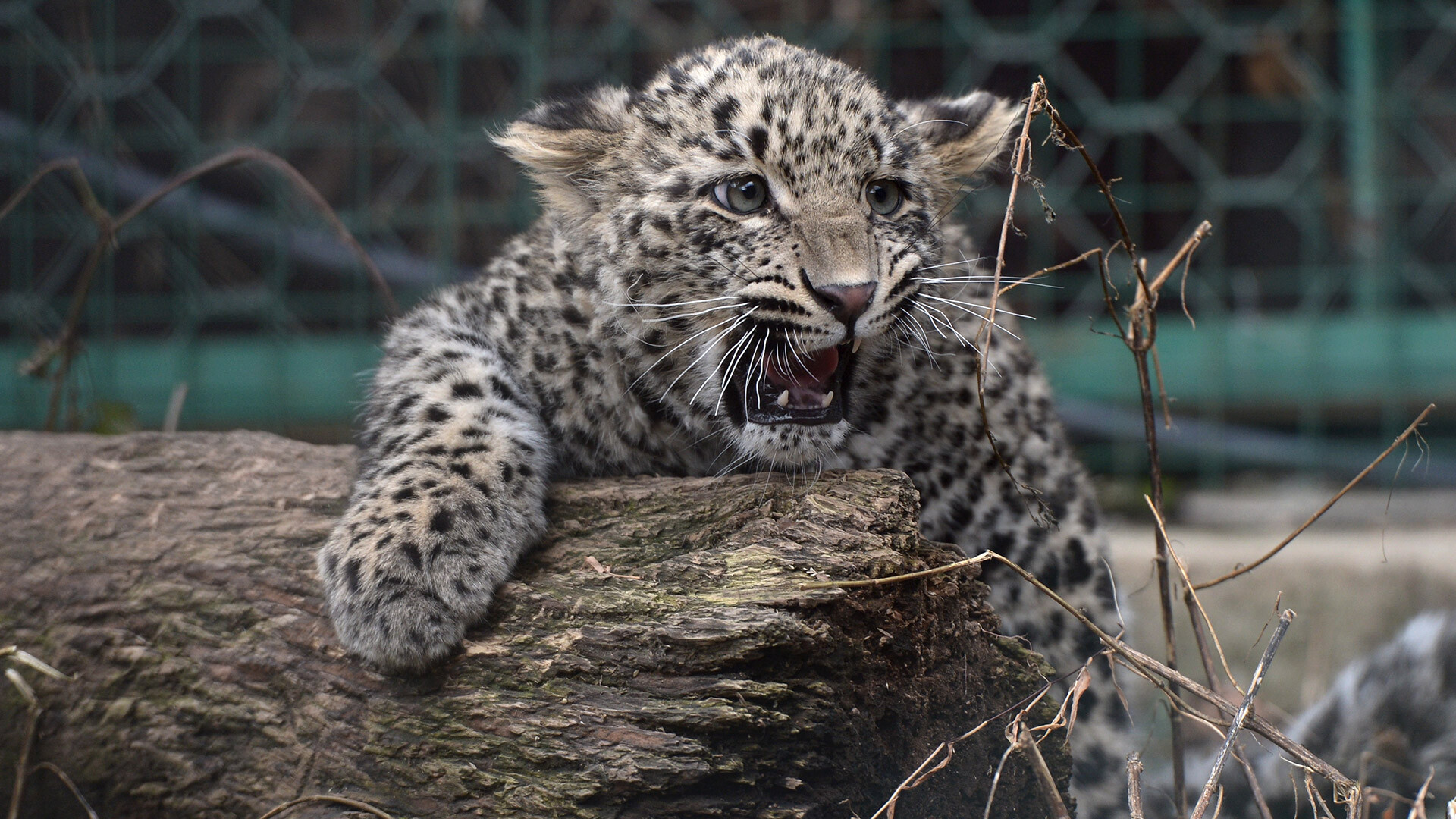
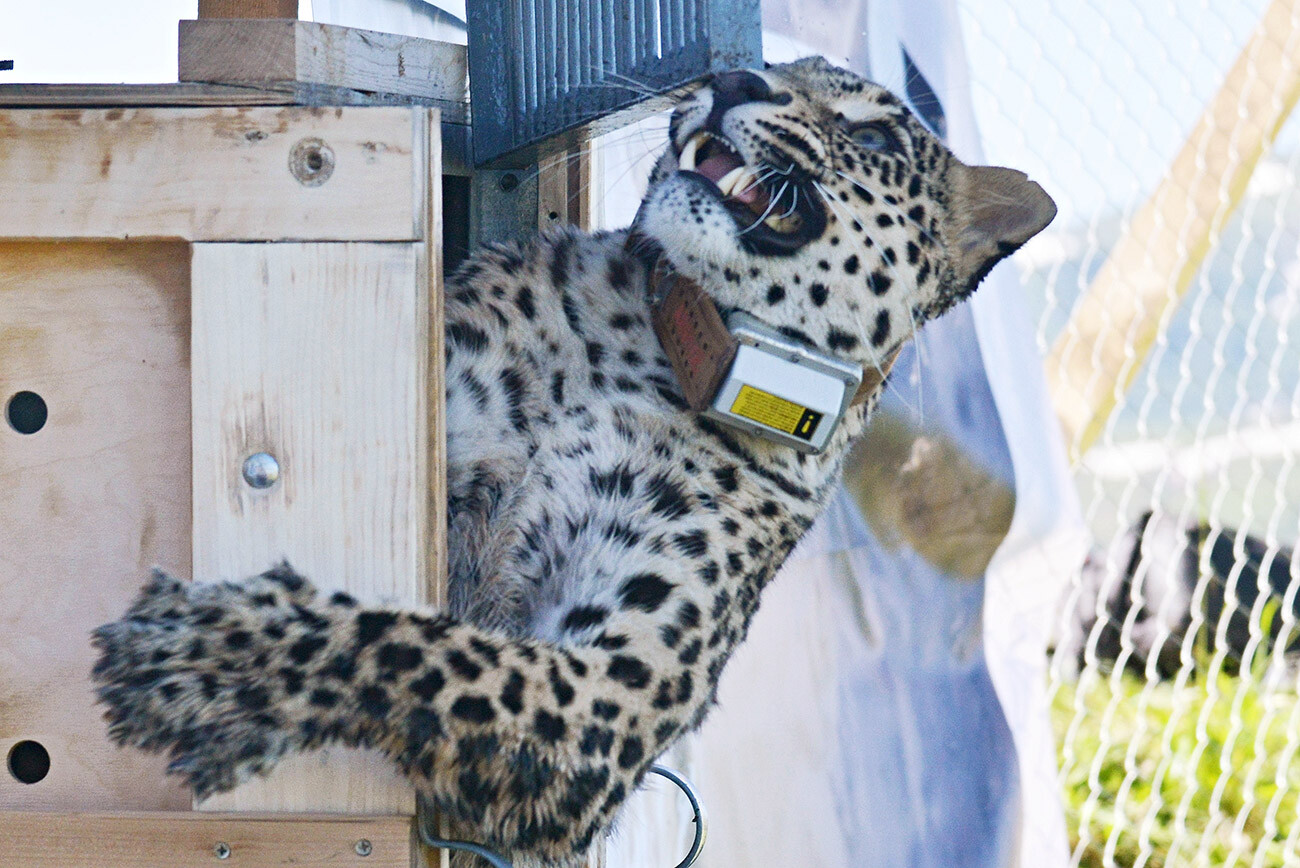
You've probably heard of the Amur (Far Eastern) leopards, but these wild cats can also be found in the Caucasus mountains.
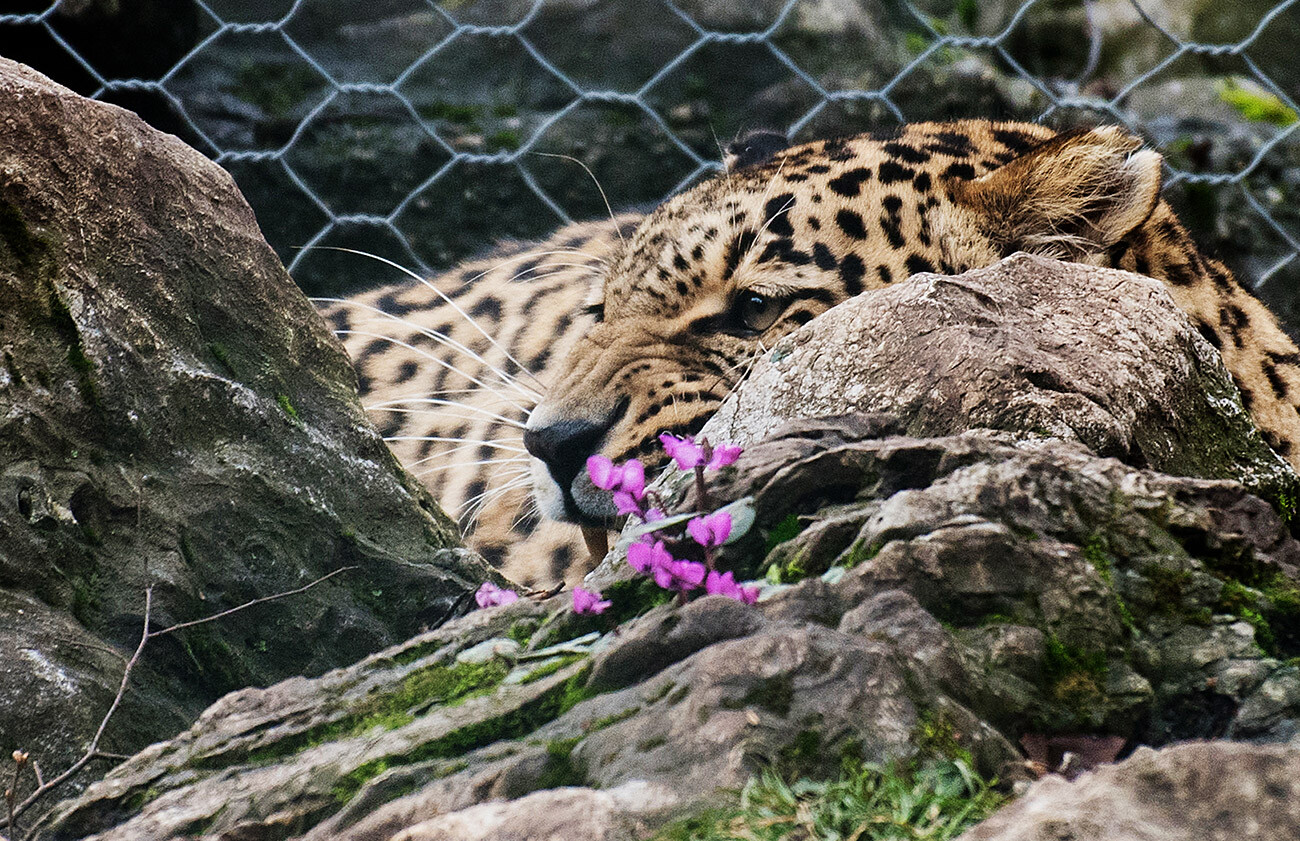
A leopard at the special center in Sochi.
Yekaterina Lyzlova/SputnikYou may remember Lermontov's poem ‘Mtsyri’: "There was an eternal guest of the desert - a mighty ‘bars’!" He was describing the character's meeting with a leopard. This animal lives in the mountains, especially respecting rocks and scatterings of stones. People called this leopard a Caucasian ‘bars’.
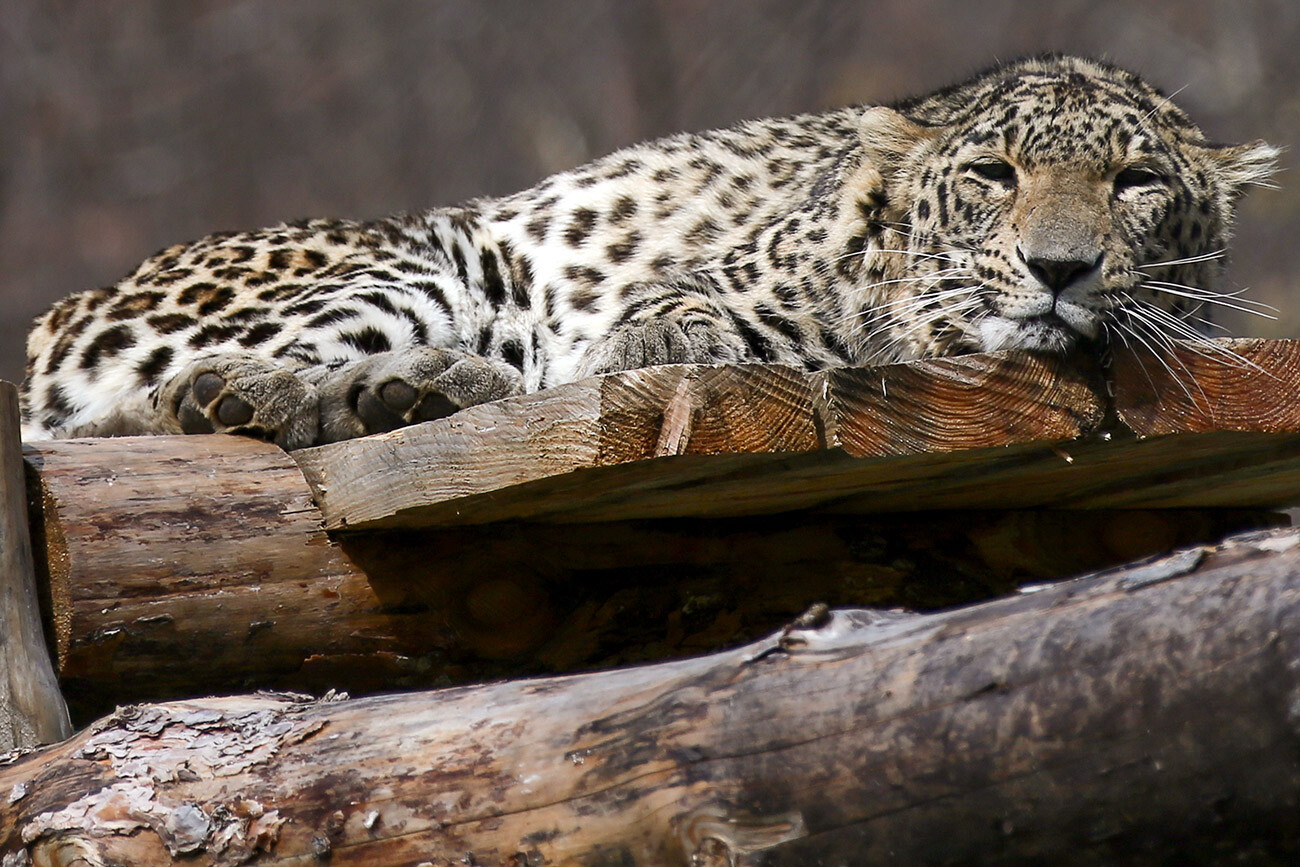
The Asia Minor leopard (Panthera pardus ciscaucasica) is larger than the Far Eastern one, while, in winter, its fur is very light, with a gray tint. Its spots, meanwhile, are not black, but brown.
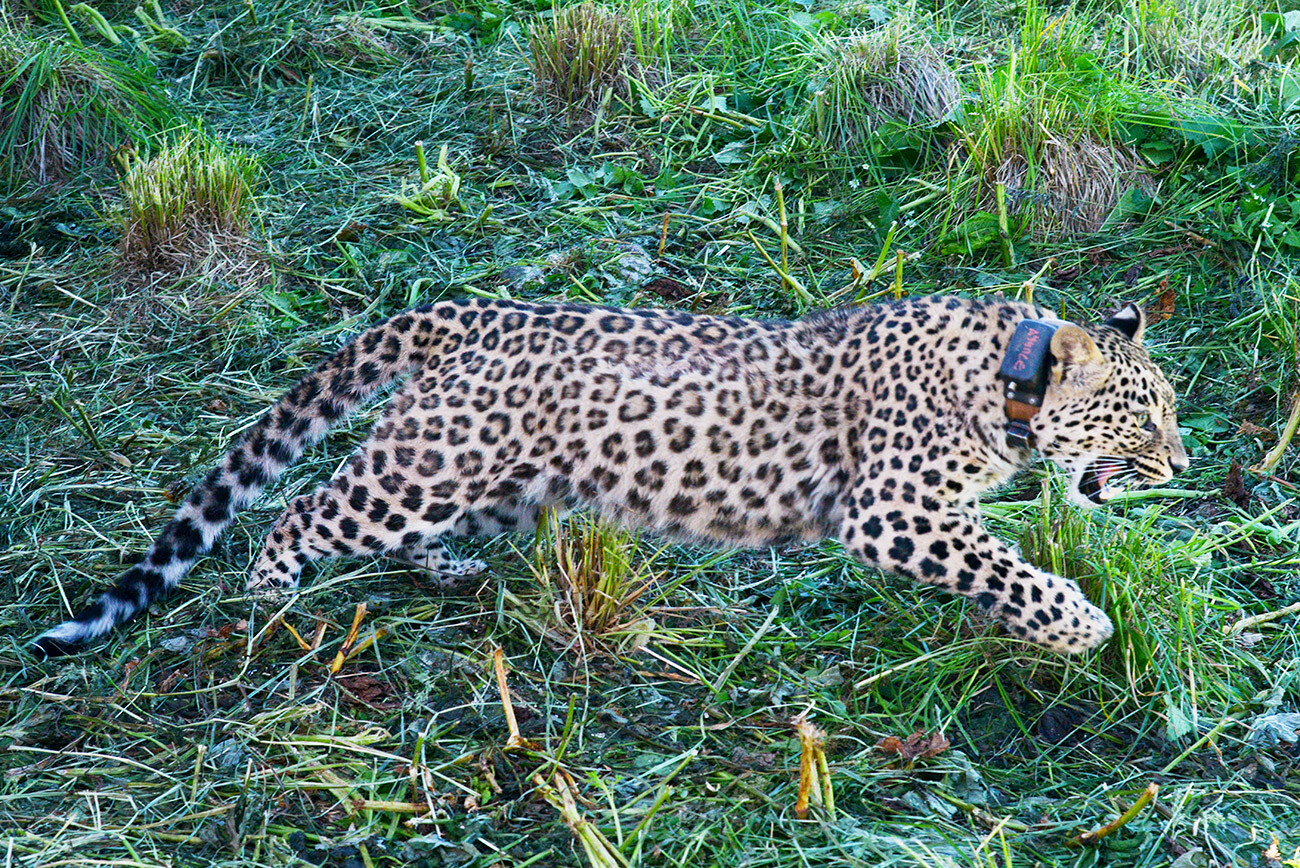
A leopard named Achipse is going to the wild.
Igor Onyuchin/SputnikThey used to live in the Caucasus and Central Asia, but, by the 1950s, they were practically wiped out. Until recently, the Caucasian leopard was considered an extinct species in Russia.

The population began to recover in 2006. Several pairs of animals were brought to the Sochi National Park from the wildlife of Turkmenistan, Iran (where they still remain), as well as from foreign zoos. As a result, the leopards became reacquainted and their offspring were then spotted in Chechnya and North Ossetia. By the way, the coat of arms of North Ossetia depicts this very species of leopard.
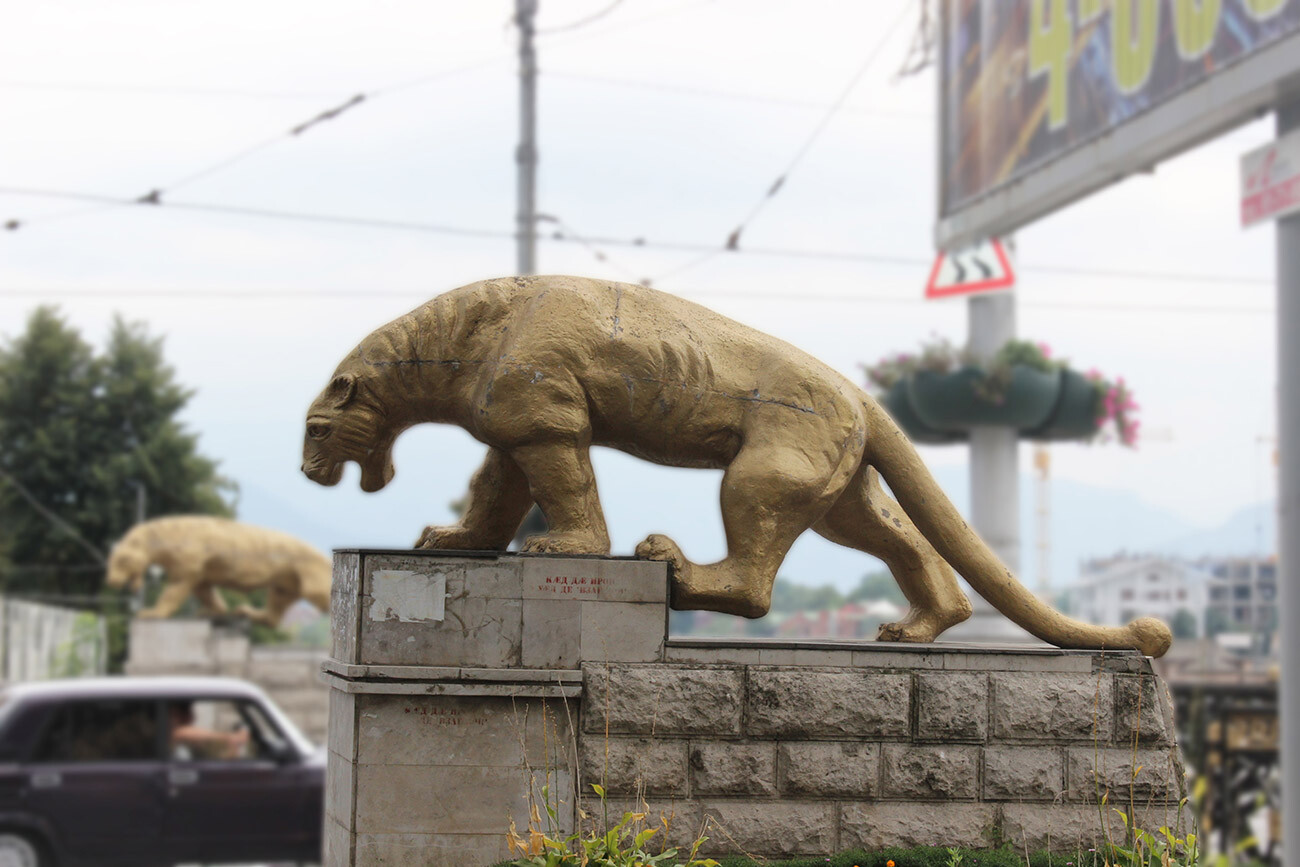
Monuments to leopards in North Ossetia.
Legion MediaNow, about 10-15 leopards live in the Caucasus: in the Sochi National Park, in North Ossetia and in Kabardino-Balkaria. Sometimes, leopards from other countries also venture for a visit.
Dear readers,
Our website and social media accounts are under threat of being restricted or banned, due to the current circumstances. So, to keep up with our latest content, simply do the following:
If using any of Russia Beyond's content, partly or in full, always provide an active hyperlink to the original material.
Subscribe
to our newsletter!
Get the week's best stories straight to your inbox